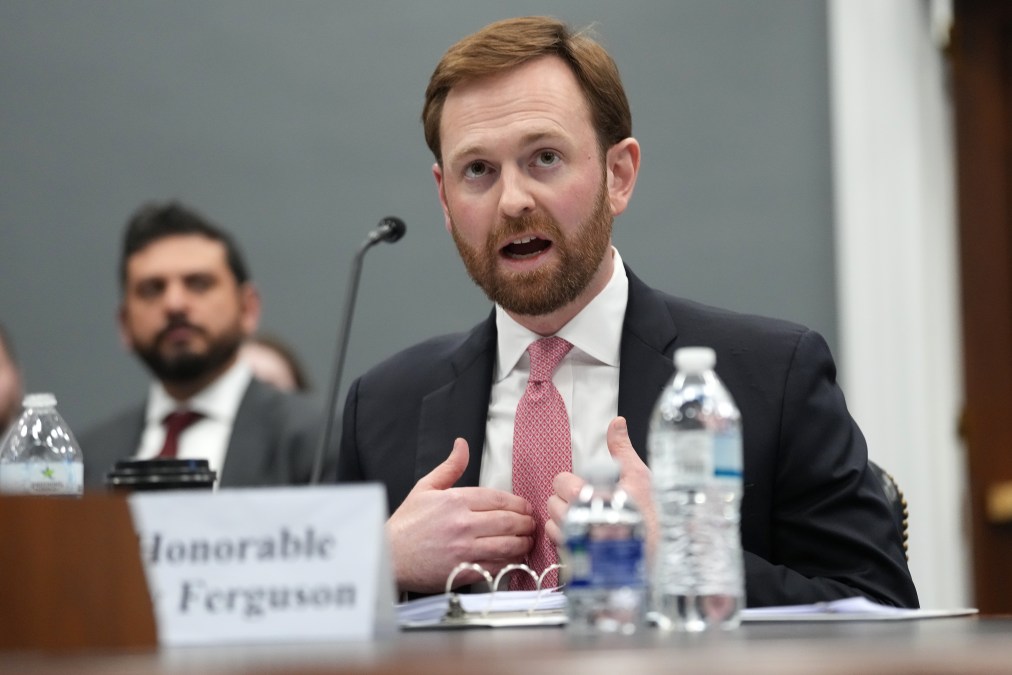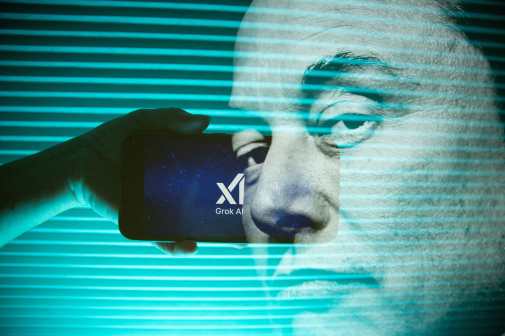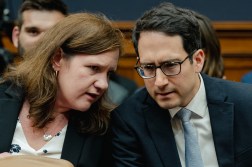FTC wants a new, segregated software system to police deepfake porn

The head of the Federal Trade Commission described to lawmakers Thursday new technology, personnel and infrastructure the agency needs as it prepares to implement and enforce the Take It Down Act, placing the FTC’s enforcement wing at the forefront of the fight against nonconsensual deepfake pornography.
The FTC’s proposed budget holds funding at $425.7 million, the same as last fiscal year. Rep. Dave Joyce, R-Ohio, chair of the House Appropriations Subcommittee on Financial Services and General Government, said in his opening comments that the agency faces rising costs around IT, infrastructure and expert witnesses.
He also anticipated that the FTC will need additional staffing and resources to enforce the new law, which compels websites and platforms that publish or share nonconsensual deepfake pornography to remove such content within 48 hours of receiving a request from a member of the public.
Ferguson agreed, noting the agency needs more resources from Congress — such as secure, isolated software for staff to review explicit material — to implement the law.
“I’m going to need some kind of segregated technology system to house this material when we’re conducting investigations,” said Ferguson, adding that it’s very likely such a system would include instances of AI-generated child sexual abuse material. “We’re not going to want that intermingled with the other bread-and-butter data that the commission brings on to conduct investigations.”
He also said the agency will need to hire specialized staff, such as prosecutors and investigators, noting that the work takes a “psychological toll” on those who review such material regularly for their jobs.
Even then, it may be difficult to enforce the law against some of the worst offenders.
“A lot of this comes from outside of the United States,” he said. “These are people who are not going to be super responsive to the civil law enforcement component of the FTC, since they’re already taking tremendous criminal risks outside the United States to do this.”
Ferguson also addressed more general funding needs, calling insufficient IT infrastructure and capacity and rising costs for expert analysis “serious” problems for the agency’s enforcement mission.
“A lot of our cases, not just big tech cases … require us to onboard massive amounts of data in order to investigate potential wrongdoing and proceed to litigation where appropriate, and we don’t currently have the infrastructure to house, maintain and access those data in a meaningful way, so we end up paying vendors to do a lot of that for us,” he told lawmakers.
A pilot program under the Biden administration brought more tech resources in-house at the FTC, and Ferguson plans to expand it agency-wide. He also floated the idea of the FTC setting a maximum budget for what the agency is willing to spend on litigating specific cases.
Dems challenge Ferguson on staffing, commissioner firings
Ferguson expressed less concern about staffing despite a loss of 1,221 full-time employees since last year. He told the committee the hiring surge during the Biden administration was unsustainable, noting the agency is using carryover funds for payroll, and he expects further staff cuts during the Trump administration.
Ranking member Steny Hoyer, D-Md., referenced Ferguson’s use of the phrase “Trump/Vance FTC” in his opening statement, saying he was “deeply concerned” about the agency’s independence.
“I was caught by that because I don’t see that very often. … Actually, it’s America’s FTC,” said Hoyer, adding that he “would urge [Ferguson to] do it in as nonpartisan a way, and frankly I urged your predecessor to do the same thing.”
By statute, the FTC is governed by a five-member commission, with a partisan split of 3-2 in favor of the party that controls the White House.
But the current FTC has only Republican commissioners, after President Donald Trump moved to fire Democratic commissioners Alvaro Bedoya and Rebecca Slaughter. The pair are fighting the move in court, citing a 1935 Supreme Court precedent that the president cannot legally fire an FTC commissioner for policy differences, only for inefficiency, neglect of duty or malfeasance in office.
Bedoya and Slaughter have also argued the issue on good government terms, arguing the FTC cannot fulfill its essential function as a bipartisan agency protecting consumers from deceptive or unfair trade practices if commissioners can be removed by the executive at a whim.
Hoyer said efforts by the Trump White House to root out dissent “seems to be creeping into almost everything we do, where so-called non-loyalists are being fired.”
“They need to be loyal to the county and to the oath that we all take to the Constitution and the laws thereof, not to any individual or group of individuals,” Hoyer said.
Ferguson publicly pledged in his 2023 confirmation hearing to be an FTC commissioner to follow binding Supreme Court precedent, specifically referencing Humphrey’s Executor, the same 1935 case. But when Trump moved to fire Slaughter and Bedoya, Ferguson supported the decision, saying he had no doubt it was in the president’s authority.
Asked about this seeming contradiction, Ferguson said he is a named defendant in the lawsuit and was thus limited in his ability to reply, but cited legal briefs filed in his name that argue a key rationale for that decision was the limited scope of FTC executive authority. Today’s FTC wields “orders of magnitude” more executive authority than it did in 1935, and he pointed to comments made by justices in a 2020 Supreme Court case that indicated a desire to overturn the precedent.
Under Ferguson’s predecessor Lina Khan, the FTC leaned heavily on its antitrust enforcement authorities, targeting mergers and consolidations between large entities while arguing such mergers reduce competition and benefit large corporations over regular consumers.
Ferguson made it clear that under his leadership the FTC would be friendlier to such actions, saying that during the Biden administration the agency had “an ideological bent” against mergers and acquisitions that he felt were important to getting capital to founders and fostering innovation.
“If we think that a deal is anti-competitive and we think we can win in court, we’re going to go to court and if we can’t, we’re going to get out of the way and we’re going to get out of the way quickly,” he said.






